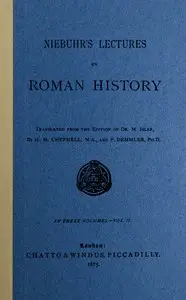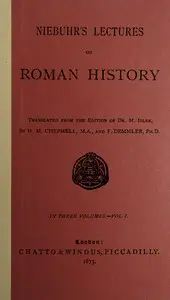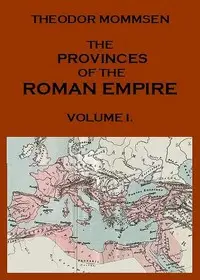"Niebuhr's Lectures on Roman History, Vol. 2" by Barthold Georg Niebuhr tells the story of ancient Rome's intense conflicts and power struggles during the First Punic War. The story discusses the beginning of the war, exploring the rise of Carthage and its inevitable clash with Rome. The narrative analyzes the clever military plans of both the Carthaginians and Romans, especially their sea battles. It looks at important leaders like Regulus and Hannibal, and shows the complex political and geographical situations that decided the outcome of the war.

Niebuhr's lectures on Roman history, Vol. 2 (of 3)
By Barthold Georg Niebuhr
Witness a clash of empires as military masterminds maneuver armies and navies in a deadly struggle for control of the ancient world.
Summary
About the AuthorBarthold Georg Niebuhr was a Danish–German statesman, banker, and historian who became Germany's leading historian of Ancient Rome and a founding father of modern scholarly historiography. By 1810 Niebuhr was inspiring German patriotism in students at the University of Berlin by his analysis of Roman economy and government. Niebuhr was a leader of the Romantic era and symbol of German national spirit that emerged after the defeat at Jena. But he was also deeply rooted in the classical spirit of the Age of Enlightenment in his intellectual presuppositions, his use of philologic analysis, and his emphasis on both general and particular phenomena in history.
Barthold Georg Niebuhr was a Danish–German statesman, banker, and historian who became Germany's leading historian of Ancient Rome and a founding father of modern scholarly historiography. By 1810 Niebuhr was inspiring German patriotism in students at the University of Berlin by his analysis of Roman economy and government. Niebuhr was a leader of the Romantic era and symbol of German national spirit that emerged after the defeat at Jena. But he was also deeply rooted in the classical spirit of the Age of Enlightenment in his intellectual presuppositions, his use of philologic analysis, and his emphasis on both general and particular phenomena in history.














